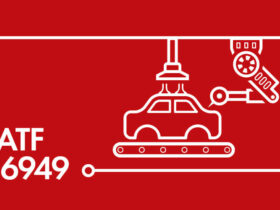In our globalized world, where communication transcends borders and languages, the role of professional translation has never been more vital. From business negotiations and international diplomacy to literature and media, professional translators play a crucial role in bridging linguistic gaps and facilitating effective communication across diverse cultures. In this article, we’ll delve into the multifaceted world of professional translation, exploring its importance, challenges, and the skills required to excel in this dynamic field.
The Importance of Professional Translation
Professional Translation agency is essential for ensuring accurate and culturally sensitive communication in a variety of contexts. In the business world, accurate translation of documents, contracts, and marketing materials is crucial for building relationships with international partners and customers. In the legal field, precise translation of legal documents is necessary for ensuring compliance with laws and regulations in different jurisdictions. In the realm of international diplomacy, skilled interpreters facilitate communication between diplomats and heads of state, playing a critical role in fostering diplomatic relations and resolving conflicts peacefully.
Challenges Faced by Professional Translators
While professional translation is a rewarding and intellectually stimulating profession, it also comes with its fair share of challenges. One of the primary challenges faced by translators is accurately conveying the nuances and subtleties of language and culture in the target language. This requires not only fluency in multiple languages but also a deep understanding of cultural nuances and context. Additionally, translators must navigate complex technical terminology and specialized vocabulary in fields such as medicine, law, and engineering, requiring extensive research and subject matter expertise.
Skills Required for Success in Translation
Success in the field of professional translation requires a combination of linguistic proficiency, cultural competence, and specialized knowledge. Professional translators must possess excellent writing and editing skills in both the source and target languages, allowing them to convey complex ideas clearly and accurately. They must also be adept at research and information retrieval, as well as skilled in the use of translation software and tools. Additionally, translators must have a keen eye for detail and a commitment to accuracy, ensuring that their translations are error-free and culturally appropriate.
The Evolving Landscape of Translation Technology
Advances in technology have transformed the field of professional translation, offering new tools and resources to enhance productivity and efficiency. Translation software and machine translation tools, such as Google Translate and DeepL, provide instant translation of text, audio, and video content, allowing translators to work more quickly and efficiently. However, while technology can aid in the translation process, it cannot replace the nuanced understanding and cultural sensitivity provided by human translators.
Conclusion
The professional translation plays a vital role in facilitating effective communication and fostering understanding across linguistic and cultural boundaries. From business and diplomacy to literature and media, professional translators serve as cultural ambassadors, bridging gaps and building connections between people around the world. While the field of professional translation presents its challenges, it also offers immense rewards for those who possess the linguistic skills, cultural competence, and dedication required to excel in this dynamic and ever-evolving profession. As our world becomes increasingly interconnected, the demand for professional translation services will continue to grow, making the role of translators more indispensable than ever.











